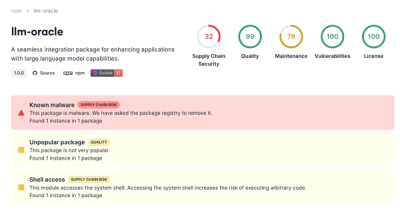
This is a plugin that only has a peer dependency to piral-core. What piral-urql brings to the table is a set of Pilet API extensions that is used by piral.
The set represents a powerful GraphQL integration using the open-source library URQL.
By default, these API extensions are not integrated in piral, so you'd need to add them to your Piral instance.
Why and When
If you use GraphQL in your application and want to provide a lightweight way of accessing the GraphQL API then this library may be for you. The reason for not just making urql a shared dependency (which you can do always) is that the authorization/token sharing just works. Additionally, this gives users of your pilets additional discoverability regarding the shared lib and its capabilities.
Alternatively, expose a GraphQL library such as urql or apollo as a shared library.
Documentation
The following functions are brought to the Pilet API.
query()
Executes a GraphQL query against the server specified in the app shell.
mutate()
Runs a GraphQL mutation against the server specified in the app shell.
subscribe()
Establishes a GraphQL subscription via the subscription host defined in the app shell.
Usage
::: summary: For pilet authors
You can use the query function from the Pilet API to execute a GraphQL query against the defined GraphQL server.
Example use:
import { PiletApi } from '<name-of-piral-instance>';
export function setup(piral: PiletApi) {
const gql = `query {
myResource(id: "example") {
name
age
whatever
}
}`;
const promise = piral.query(gql).then(({ name, age, whatever }) => {});
}
You can use the mutate function from the Pilet API to run a GraphQL mutation against the defined GraphQL server.
Example use:
import { PiletApi } from '<name-of-piral-instance>';
export function setup(piral: PiletApi) {
const gql = `mutation {
changeMyResource(id: "example", name: "foo") {
name
age
whatever
}
}`;
const promise = piral.mutate(gql).then(({ name, age, whatever }) => {});
}
You can use the subscribe function from the Pilet API to create a GraphQL subscription to the defined GraphQL server.
Example use:
import { PiletApi } from '<name-of-piral-instance>';
export function setup(piral: PiletApi) {
const gql = `subscription {
onMyResourceChange(id: "example") {
name
age
whatever
}
}`;
const unsubscribe = piral.subscribe(gql, ({ name, age, whatever }) => {});
}
:::
::: summary: For Piral instance developers
For Piral instance developers
The provided library only brings API extensions for pilets to a Piral instance.
For the setup of the library itself you'll need to import createGqlApi from the piral-urql package.
import { createGqlApi } from 'piral-urql';
The integration looks like:
const instance = createInstance({
plugins: [createGqlApi()],
});
Via the options the correct client can be set up. Setting the subscriptionUrl to false will prevent using a subscription.
For example:
const client = setupGqlClient({
url: 'https://example.com/graphql',
subscriptionUrl: false,
lazy: true,
});
const instance = createInstance({
plugins: [createGqlApi(client)],
});
Note: piral-urql plays nicely together with authentication providers such as piral-adal. As such authentication tokens are automatically inserted on queries, mutations, and when establishing subscriptions.
:::
License
Piral is released using the MIT license. For more information see the license file.







